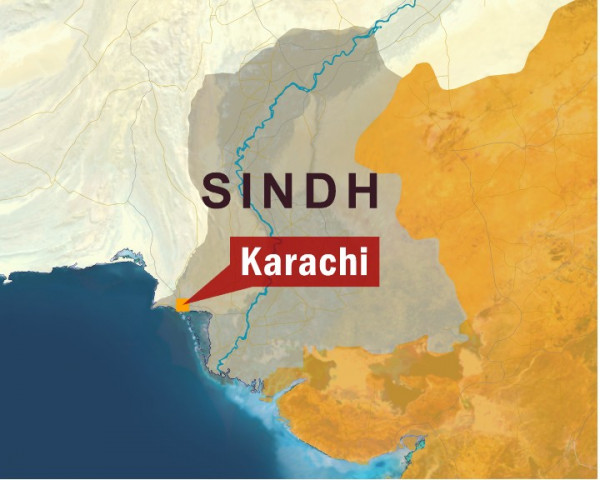Attitude change becomes compulsory part of police training

Attitude change becomes compulsory part of police training
The seminar was held by Rozan, a non-government organisation (NGO) working for the rights of children, women and adolescents since 1988. The NGO has organised a programme under which police officials are taught the importance of improving their character and interpersonal skills.
“We were requested by the [Sindh] police department to conduct trainings for policemen so we decided to launch a programme under the name “Launch of the Attitudinal Change Module in Police Training College and Schools in Sindh,” explained Babar Bashir, managing director of Rozan.
The NGO has already trained 3,000 police officials under a similar initiative in Punjab. The programme lasted from 2007 to 2008. The training is provided by qualified professional psychologists.
Policing in the 21st century is a challenging job in which men and women are overworked, underpaid, unappreciated by society and are often working in life threatening situations, said Bashir, explaining that courses in attitude-changing would help bridge some of these deficits.
“The training has helped us in controlling our anger and reforming our behaviour,” said one of the sub inspectors who participated in the course at Shadadpur. He felt that it was very important that the course be taught as part of the police training curriculum.
“We are seen as villains rather than protectors,” he said, adding that this image needed to be changed.
Another master trainer, Asad Ali Chatter from Jam Nawaz Ali added, “Policemen’s entire performance is based on their behaviour.”
Division of training sessions
The first phase of the programme was to select and train ‘master trainers’ who would then train the rest of the officials.
“There were three different categories of the training sessions for policemen who were trained as master trainers across Sindh,” Bashir told participants at the seminar. One of the training segments was especially for constables, another for assistant sub inspectors and inspectors while the third kind of training focused on assistant superintendents.
The areas covered in the sessions included dealing with stressful situations, anger management through self-awareness and exercises that helped policemen and women improve their personality and become role models for the rest of the police force.
Altogether 40 police officials have been trained by the NGO and these officials are all set to impart their newly-learned skills and secrets to the rest of the force.
Golden words by the chief guest
The problem is that the police are called in for everything, complained the chief guest of the seminar. If all other departments resolve their own issues then the police would not be blamed and hated for everything, said additional inspector general police, Wajid Ali Durrani.
The officer felt that all departments should solve their own disputes rather than call in the police for every instance of ‘water theft, anti-encroachment drive and protest’.
“People protest if the government does not offer them a good budget and then police is called in. If they [protestors] are baton-charged and tear-gassed then again, the police get all the abuse.”
But the police have to be called in if encroachers have to be forced to move, pointed out one of the participants, adding that civilians do not have the right to attack others, even if they are illegally living or staying on others’ land.
But Durrani brushed aside the comments, saying that there were anti-encroachment officers in the government who could deal with the issue.
The officer also shared experiences from his 30-year career, during which he has also worked in Punjab and Khyber-Pakhtunkhwa. “Punjab police in my experience was the cruellest police force. The most decent police was in Khyber-Paktunkhwa while the force in Sindh comes second when it came to decency,” Durrani claimed.
According to him, personality traits were moulded in childhood. However, he was of the view that much could be achieved through these training sessions.
Published in the Express Tribune, June 15th, 2010.



















COMMENTS
Comments are moderated and generally will be posted if they are on-topic and not abusive.
For more information, please see our Comments FAQ